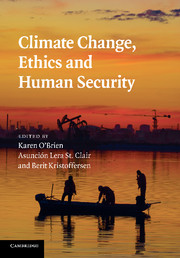Foreword
Published online by Cambridge University Press: 01 June 2011
Summary
In May 2009 the International Social Science Council (ISSC) convened the first ever World Social Science Forum. The theme of the Forum – One Planet, Worlds Apart? – challenged social scientists from different parts of the world, working with different theories and different methodologies, to join forces in tackling the most important global problems of the day, and to do so in ways that make sense of shifting geopolitics, address global inequalities and preserve human culture, dignity and diversity.
Can science save us from climate change? This was one of the key questions posed at the Forum. Those asked to address it included the Nobel laureate Rajendra Pachauri, Chair of the Intergovernmental Panel on Climate Change (IPCC) and Roberta Balstad, Co-Director of the Center for Research on Environmental Decisions at Columbia University and Editor-in-Chief of Weather, Climate, and Society, a new journal of the American Meteorological Society. Both speakers issued a clear and concise message: climate change research needs a stronger social science voice; more than that, to produce the kind of knowledge we need to respond effectively to the complexities of global environmental change, an integration of natural and social sciences is no longer a choice but a simple necessity.
ISSC President Gudmund Hernes reminds us that today we know that climate change is not about ‘the forces of nature, so to speak, autonomously at work, like planetary motions’; we know that what has set those forces in motion is human action.
- Type
- Chapter
- Information
- Climate Change, Ethics and Human Security , pp. ix - xiiPublisher: Cambridge University PressPrint publication year: 2010



